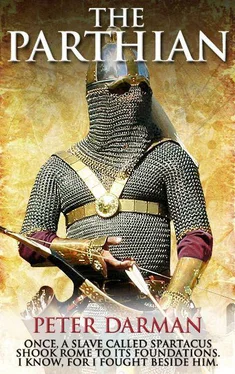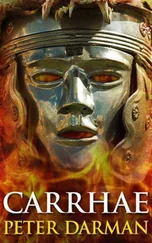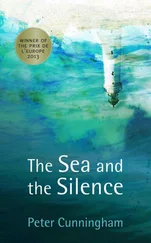Peter Darman - The Parthian
Здесь есть возможность читать онлайн «Peter Darman - The Parthian» весь текст электронной книги совершенно бесплатно (целиком полную версию без сокращений). В некоторых случаях можно слушать аудио, скачать через торрент в формате fb2 и присутствует краткое содержание. Год выпуска: 2011, Жанр: Исторические приключения, на английском языке. Описание произведения, (предисловие) а так же отзывы посетителей доступны на портале библиотеки ЛибКат.
- Название:The Parthian
- Автор:
- Жанр:
- Год:2011
- ISBN:нет данных
- Рейтинг книги:4 / 5. Голосов: 1
-
Избранное:Добавить в избранное
- Отзывы:
-
Ваша оценка:
- 80
- 1
- 2
- 3
- 4
- 5
The Parthian: краткое содержание, описание и аннотация
Предлагаем к чтению аннотацию, описание, краткое содержание или предисловие (зависит от того, что написал сам автор книги «The Parthian»). Если вы не нашли необходимую информацию о книге — напишите в комментариях, мы постараемся отыскать её.
The Parthian — читать онлайн бесплатно полную книгу (весь текст) целиком
Ниже представлен текст книги, разбитый по страницам. Система сохранения места последней прочитанной страницы, позволяет с удобством читать онлайн бесплатно книгу «The Parthian», без необходимости каждый раз заново искать на чём Вы остановились. Поставьте закладку, и сможете в любой момент перейти на страницу, на которой закончили чтение.
Интервал:
Закладка:
The lanista who ruled Castus’ ludus was a man called Cornelius Lentulus. ‘A greedy little bastard,’ as Castus colourfully described him.
‘Thin as a pole he was, with a small, bony face and two tufts just above his ears either side of his head.’ Castus took another swig from his cup and laughed. ‘He could size up a man in an instant. Know what weapons he would be good with in the arena, how many fights he would win and even when he would get killed, more or less. To be fair to him, may his spirit be the plaything of demons in the underworld, he always made sure that we had enough to eat and the instructors didn’t beat us too much — just enough to keep us on our toes.’
Around us the revellers were enjoying the skills of a troupe of jugglers who were performing amazing feats with a collection of Roman swords, throwing them to each other in a blur of movement. I noticed that Crixus and his companions were shouting that the jugglers should aim better and throw their swords into each other. Castus resumed his tale.
‘We fought for Lentulus for three years, and I have to say that his school got a good reputation in Capua and throughout southern Italy for producing fine gladiators. The crowds love a spectacle, you see. Simple butchery isn’t sufficient. That’s why we spent hours each day practising with weapons, so in the arena, as Lentulus put it, we would “fight with finesse”. Spartacus, he was the one. Had over forty kills under his belt by the end. The crowd loved him. Fights with his brain, you see, whereas Crixus is all brute strength and Gallic fury.’ Castus spat out a piece of meat and wiped his mouth on the sleeve of his tunic.
‘Lentulus was becoming seriously rich renting out his fighters to those putting on displays. If they wanted Crixus and Spartacus, he could just about name his price. He was happy, we were happy; everyone was happy.’
‘How could you be happy living like an animal, trained to fight?’
He looked at me in puzzlement, I think trying to work out whether I was stupid or genuinely ignorant of how these things worked. He gave me the benefit of the doubt. He smiled as a juggler missed his timing and the point of a blade embedded itself in his arm. Crixus spat out a mouthful of wine and bellowed his approval as the man collapsed onto the ground in pain.
‘It’s not like that, at least not for Spartacus. Look, a lot of gladiators are killed during their first few fights, either because they are unlucky or, more likely, because they are no good. But a good fighter, and Spartacus is one of the best, wins his early fights. He gets more confident in the arena, he wins more fights and soon he has prestige, which increases with every contest. That way many of the contests are as good as over before the fight begins, because the other man knows he can’t beat who he’s up against. And also, a champion has a lot of supporters, and they make sure that they shout the loudest if he has a bad day, and they sway the officials and save his skin. Simple, really.’
I was confused. ‘If life was so good, then why did you break out?’
He smiled to himself. ‘Same reason that men have been fighting since the beginning of time. A woman.’
‘I don’t understand.’
He looked up and sighed loudly, then shook his head. ‘Like I said, Lentulus was becoming rich, and like all rich men he wanted some trophies around him to show how wealthy he was. So he starts dressing in the finest clothes and buys expensive slaves. Young boys from Numidia, learned Greeks to read to him and young girls to play with at night. But one day he comes back from the slave market all excited. Turns out he had bought a Gallic women, twenty years old, he said. Same race as Crixus. He asked Claudia if she would instruct this girl in how to conduct herself as his wife, saying he won’t touch her until she is his wife. Remember, Claudia is Spartacus’ wife and wasn’t a slave.’
I looked at him in more confusion.
‘I’ll explain another time. Anyway, this girl arrives and her and Claudia become friends. But this girl doesn’t want to be the slave of Lentulus, much less his wife and she tells him so. I remember that day. We were all in the mess hall eating our midday meal when he comes in with her beside him to show her off to his gladiators. But she starts to argue with him and so he slaps her hard. So Claudia steps between them and tells him to stop. Lentulus slaps Claudia, which was a bad mistake, for it was the last thing he did before Spartacus split his skull on a stone column. Then he killed a couple of instructors, Crixus killed two more just for the hell of it, and the next thing we are hot-footing it out of Capua as fast as we could. Like I said, all over a woman.’
‘Who was she?’ I asked, not sure if he was making it all up.
‘Who, Gallia? See for yourself, she’s over there.’
I looked to where Castus was peering and saw a vision of beauty that made everyone and everything else disappear. I’ve often thought of the first moment I saw Gallia and have often wondered if all men experience the same emotions when they cast their eyes on ‘the one’. She was wearing a simple blue stola, with a black belt around her waist. She embraced Claudia and then Spartacus, laughing and obviously at ease with her friends. Her long, thick blonde hair cascaded down over her breasts and framed her flawless, oval face with its high cheekbones and narrow nose. She was beautiful, yes, but aside from the perfect features nature had gifted her she also gave the impression of strength and pride. She was tall, around six foot, and her dress highlighted the contours of her lithe body. She held herself erect and strong, undaunted by the coarse gathering of gladiators around her. I noticed that she glanced at the now roaringly drunk Crixus and frowned. Claudia whispered something in her ear and she cast me a quick glance. My heart leapt but she quickly returned to conversing with her two friends. I noticed she wore no jewelry; she didn’t have to. No amount of gold could improve upon her natural beauty. Perhaps I had had too much wine, but this woman called Gallia had burst into my world like a flaming comet crashing to earth from the heavens. I wanted to know more about her, at the very least talk to her, but she never looked at me again that evening. I yearned to be near her, but she sat next to Claudia and Spartacus and ignored me. Later another woman, with brown hair and a kind if unremarkable face, sat next to Gallia. It was apparent that the two were friends, and Castus informed me that her name was Diana and that she had been a kitchen slave at the ludus.
The days after the feast were filled with the task of creating a force of cavalry from nothing. Spartacus gave me the thirty horses he had promised, which had been captured from the Roman force he had destroyed on the slopes of Vesuvius. They were adequate beasts, but did not compare to the specially bred Arabians of Hatra, which were noted for their depth of chest, masculine power and size. They were also intelligent, especially my Sura, on whom I had fought my first battle. The most common colours in Hatra were grey and chestnut, though the royal stables of my father had always specialised in breeding pure whites. His whites were famed throughout the Parthian Empire, and were highly sought after. This being the case, Hatra attracted its fair share of horse thieves; if caught, which they invariably were, they were usually impaled on stakes outside the gates of the city as a warning to others.
The horses we now rode on were certainly not Arabians, yet they were hardy enough and were responsive to our commands, being military horses. The Roman saddles we rode on were similar to Parthian ones, being built around a wooden frame with four horns reinforced with bronze plates at each corner to hold the rider in place, the front horns supporting the inner thigh and the two back horns supporting the hips. The whole saddle was padded and covered in leather. I led the party of horsemen that included Nergal and Gafarn. We rode to the valley where Spartacus had showed me the herd of wild horses. They were still there when we arrived, around fifty of them, maybe more. We tethered our own horses in trees out of sight of the herd and then approached them on foot. Taming wild horses requires time and patience, but first they have to be captured. We Parthians were horse masters and we knew all the tricks. First of all, each of us peeled off the top layer of the chestnuts from our own horses and rubbed them on our hands. The chestnuts were the small, horny calluses on the inner surface of a horse’s leg, and they gave our hands the reassuring smell of a fellow horse. We all had ropes as we gently approached a wild horse, making sure we were all upwind of our targets.
Читать дальшеИнтервал:
Закладка:
Похожие книги на «The Parthian»
Представляем Вашему вниманию похожие книги на «The Parthian» списком для выбора. Мы отобрали схожую по названию и смыслу литературу в надежде предоставить читателям больше вариантов отыскать новые, интересные, ещё непрочитанные произведения.
Обсуждение, отзывы о книге «The Parthian» и просто собственные мнения читателей. Оставьте ваши комментарии, напишите, что Вы думаете о произведении, его смысле или главных героях. Укажите что конкретно понравилось, а что нет, и почему Вы так считаете.












